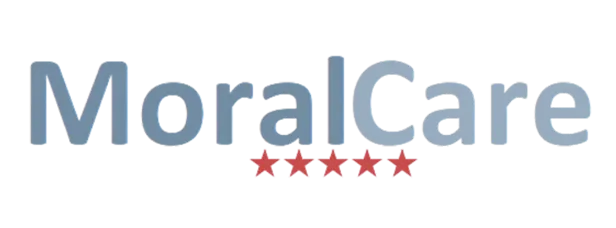Continuous Learning Culture Policy

1. Policy Statement
MoralCare is committed to fostering a continuous learning culture where all staff members are encouraged to grow, develop, and learn from every experience. This policy establishes our framework for ongoing professional development, reflective practice, and learning from mistakes, errors, near misses, and incidents to continuously improve the quality and safety of our care services.
We believe that learning is a lifelong journey that extends beyond formal training to include experiential learning, peer collaboration, and constructive reflection on all aspects of our work.
2. Scope
This policy applies to all MoralCare employees, including care workers, supervisors, managers, and support staff. It covers all forms of learning opportunities within our organisation.
3. Legal and Regulatory Framework
Care Quality Commission (CQC) Fundamental Standards
Health and Social Care Act 2008 (Regulated Activities) Regulations 2014
Care Certificate Standards
Skills for Care guidance on continuous professional development
NICE guidelines on staff development and training
4. Principles of Our Learning Culture
4.1 Just Culture Approach
We distinguish between human error, at-risk behaviour, and reckless behaviour
Honest mistakes and system failures are treated as learning opportunities, not blame opportunities
Staff feel safe to report errors, near misses, and concerns without fear of punishment
Accountability is balanced with compassion and learning
4.2 Growth Mindset
Challenges are viewed as opportunities to improve
Effort and persistence are valued and recognised
Feedback is welcomed and acted upon constructively
Learning from others' experiences is actively encouraged
4.3 Reflective Practice
Regular reflection on practice is embedded in daily work
Critical thinking and self-assessment are developed and supported
Learning is shared across the team for collective benefit
5. Learning Opportunities Framework
5.1 Formal Learning and Development
Support for professional qualifications and career progression
Access to external conferences, workshops, and seminars
Diplomas and Apprenticeships available
5.2 Experiential Learning
Structured shadowing programmes for new staff, and staff who need more support.
Participation in quality improvement projects and meetings
Involvement in policy development
Client and family feedback integration into personal development
5.3 Peer Learning
Regular team meetings with learning-focused discussions
Case study reviews and best practice sharing at meetings
Peer support groups
6. Learning from Incidents, Errors, and Near Misses
6.1 Incident Reporting Culture
All staff are encouraged to report incidents, errors, near misses, and concerns promptly
Reporting is viewed as a professional responsibility and a learning opportunity
No blame approach for genuine mistakes and system failures
Recognition and appreciation for staff who report incidents
6.2 Investigation and Analysis Process
All incidents undergo thorough but fair investigation
Root cause analysis identifies system issues, not just individual factors
Contributing factors are explored, including workload, training, communication, and environmental issues
Staff involved in incidents are supported throughout the process
Investigation findings focus on learning and improvement opportunities
6.3 Learning Dissemination
Learning from incidents is shared across the organisation (whilst maintaining confidentiality)
Regular "Learning Bulletins" highlight key lessons and improvements - (Friday handovers)
7. Implementation Strategies
7.1 Leadership Commitment
Senior management demonstrates commitment to learning through actions
Leaders model learning behaviours and admit their own mistakes
Learning achievements are celebrated and recognised
7.2 Learning Environment
Physical and virtual spaces support learning activities
Learning resources are easily accessible to all staff
Quiet spaces are available for reflection and study
7.3 Communication and Engagement
Regular communication about learning opportunities and achievements
Learning is awarded in our employee engagement program
Staff surveys
Feedback mechanisms to improve learning programmes
Integration of learning discussions into supervision and appraisal processes.
8. Personal Learning and Development Plans
8.1 Individual Assessment
Identification of learning needs and career aspirations
Personal learning goals aligned with organisational objectives
Regular review and supervision.
9. Quality Assurance and Monitoring
9.1 Learning Culture Metrics
Incident reporting audits
Accident reporting audits
Near Miss Audits
Training completion rates and effectiveness
Staff feedback on learning culture and opportunities
Implementation of learning from incidents
9.2 Regular Review
Quarterly assessment of learning culture effectiveness
Integration of CQC feedback and recommendations within policy reviews
10. Roles and Responsibilities
10.1 Senior Management
Provide strategic leadership for learning culture development
Allocate adequate resources for learning and development
Model learning behaviours and transparency about mistakes
Ensure policy compliance and effectiveness
10.2 Managers and Supervisors
Support and encourage staff learning and development
Facilitate learning from incidents and near misses
Provide regular feedback and coaching
Identify learning opportunities and needs within their teams
11.3 All Staff
Actively engage in learning opportunities
Report incidents, errors, and near misses promptly
Participate in reflective practice and peer learning
Share knowledge and learning with colleagues
Take responsibility for their own professional development
12. Review and Updates
This policy will be reviewed annually or following significant incidents, regulatory changes, or organisational developments. All staff will be consulted during policy reviews, and updates will be communicated through training sessions and team meetings.
13. Related Policies
Training and Development Policy
Incident Reporting and Management Policy
Supervision Policy
Whistleblowing Policy
Performance Management Policy
Health and Safety Policy

Comments